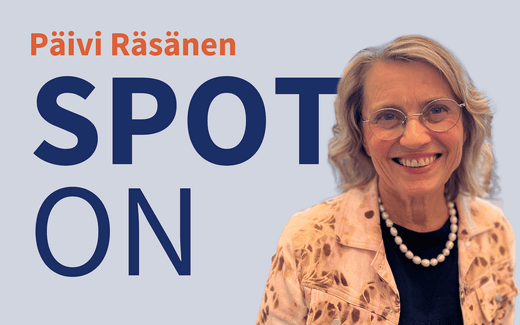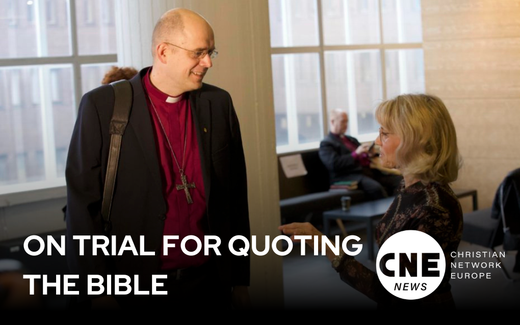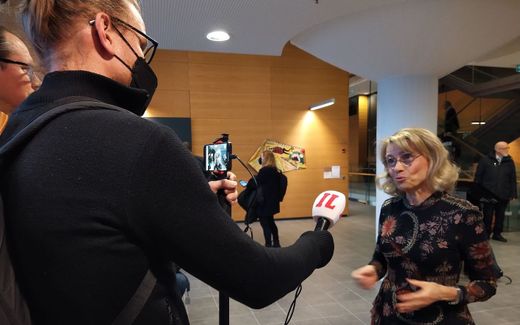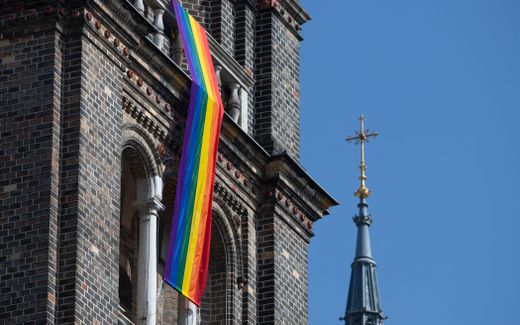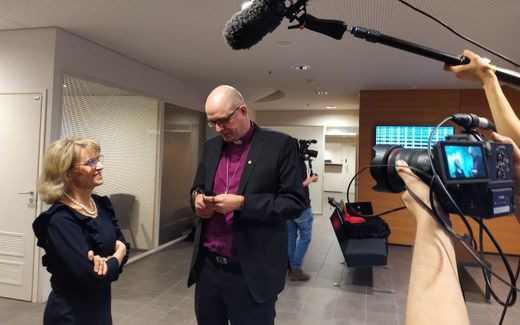This is how Päivi Räsänen prepares for her final trial
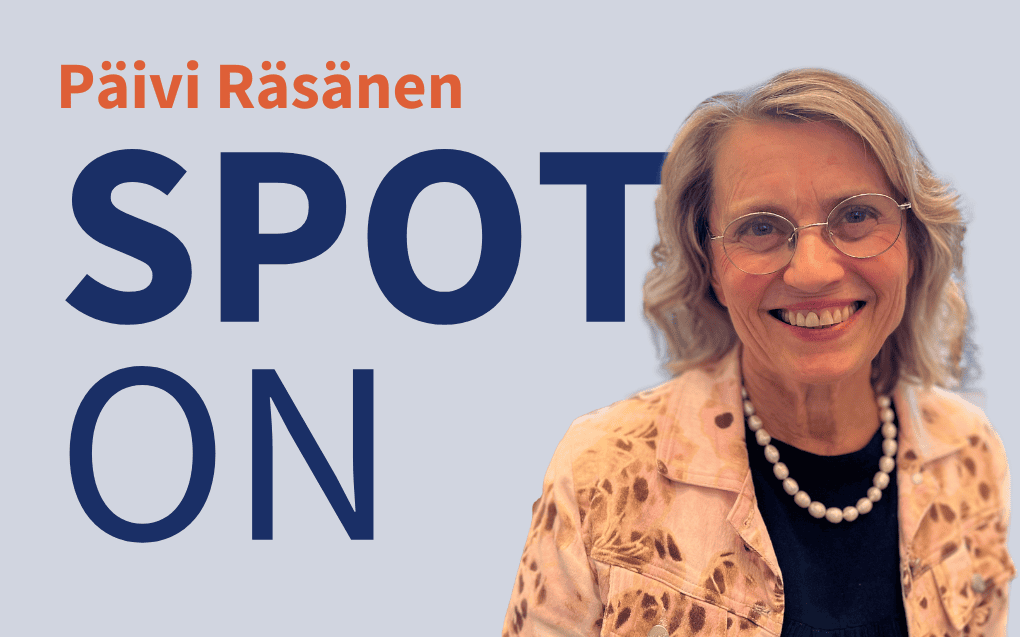
Päivi Räsänen. Photo Canva.com
Opinion
The Finnish MP Päivi Räsänen reaches the final stage of her trial. On October 30, she goes to the Supreme Court for her statements about Biblical marriage. In the midst of her preparations, she looks forward to opportunities to share something of Jesus’s love for sinful people.
I just received a lovely e-mail from a young man who also contacted me in October 2019. That was shortly after the police investigation into my Bible-based tweet was made public. At the time, he introduced himself as an atheist and said that he was angry at the idea that I would disapprove of his possible marriage to a man.
Now, he contacted me to thank me for the conversation we had via e-mail back then. He quoted my 2019 letter, which had opened the way for him to salvation and eternal life. I had written to him:
“Man himself cannot generate faith, but God’s Holy Spirit does it. And you can pray to Jesus to come and live in your heart, to forgive your sins and inspire faith in Him. God reveals himself through his word – the Bible.”
His recent message was an essential encouragement to me. It reminded me again of what is fundamentally at stake in my legal process, which has entered its seventh year. It is not in vain to defend freedom of speech and religion! And it is not in vain to defend in public the word of God, the teachings of the Bible!
Hate speech
My legal case started with a tweet, in which I criticised the church leadership of our Lutheran State Church for supporting a Pride event, which I believe is very much against the Bible. I was concerned that many might lose their trust in the Bible because of false teaching.
At the core of this process, the question is not only about marriage or sexuality, but about a person’s salvation to eternal life.
I was taken to court for this statement. In the District Court hearing in January 2022, the prosecutor argued that the doctrine, which she summarised in the words “hate the sin, but love the sinner,” was in itself offensive and prohibited hate speech.
I categorically deny the charge of hate speech. At the core of this process, the question is not only about marriage or sexuality, but about a person’s salvation to eternal life. God is love, and what He teaches in the Bible arises from love for sinful man.
The prosecutor’s central argument hit the very core of the Christian faith. The message of the cross, Jesus’ sacrificial death on our behalf, tells us how deeply God loves people but hates sin. I have had to justify my faith in front of both the police and judges. They have also tried to pressure me to give up my faith-based convictions.
Surprise
As I write this, I am preparing for the upcoming Supreme Court hearing on October 30. In two Teams meetings with my lawyer Matti Sankamo, we have reviewed the materials. Other good advice came from director Paul Coleman of ADF International.
My lawyers have pointed out that imposing sanctions on someone for professing their faith is prohibited by the European Convention on Human Rights. Therefore, the state prosecutor’s way of challenging writings based on religious convictions is very exceptional and reprehensible in Finnish and Western legal traditions.
It may, thus, not come as a total surprise that I have already received acquittals from two courts. However, the Prosecutor General appealed to the Supreme Court to punish me for my classical Christian views on marriage. I am accused of incitement against a minority and of illegal hate speech. This legal case is a significant precedent that will shape the future state of freedom of expression in Finland and also impact many other European countries with similar legislation that restricts freedom of expression.
Freedom of faith and conscience
In the midst of all of this, I am reminded of Martin Luther’s words on the subject of “The Consequence of Faith”: “If you believe, then you speak. If you speak, then you must suffer. For faith, confession, and the cross belong together and are part of a true Christian.”
We, too, have the right to invoke the freedom of faith and conscience that is guaranteed by our own country’s constitution.
The Word of God is not bound by human limitations. Often, it is precisely persecution and restrictions that increase the opportunity to take the Gospel to places where it would not otherwise be heard.
At the same time, as Christians, we may appeal to our Constitution when we defend our freedom of expression. The apostles’ freedom of speech was tried in many situations. And when the apostle Paul was about to be flogged for his speeches, he appealed to the law: “Is it lawful for you to flog a Roman citizen, and uncondemned?” Paul defended himself with the rights of a Roman citizen. We, too, have the right to invoke the freedom of faith and conscience that is guaranteed by our own country’s constitution.
I consider it an honour to be called to defend freedom of speech and belief in this time. My husband Niilo has been closely involved with me throughout the legal process. He has again taken the day off for the trial and has received permission from the Supreme Court to attend the hearing. I feel that this is our common fight – and I am delighted that all five of our children and their families are strongly supporting me.
Preparations
October 30, the day of the trial in the Supreme Court, is approaching rapidly. This autumn has been an extremely busy time in terms of parliamentary work in Finland, especially in the Social and Health Affairs Committee and the Foreign Affairs Committee. I have been occupied with the promotion of better healthcare, services for the elderly, the status of marginalised children and young people and sustainable family policy. Besides, I am working on a plan against a new initiative on euthanasia and on the promotion of peace efforts in the Middle East and Ukraine.
Between all of this work, I am seeking moments to focus on preparing for the crucial trial. God knows all my tasks and how I use my time. This legal process has been in God’s good care so far, and I trust that He will bring it to a conclusion in the way He wants.
I read the Bible every day, not selectively, but in order, from beginning to end, repeatedly. I have done so throughout my adult life and will continue to do so before this trial. The entire Bible is God’s wonderful word.
Hymns
The trials have strengthened my trust in the promises of Jesus. He truly gives His followers a hundredfold what they may have to give up. I have gained a great deal more joy, friends, great times and support than I have lost because of these charges. I have also experienced that “what you are to speak will be given to you in that hour” (Matthew 10:17–20).
Of course, there have been dark moments. I remember that I slept poorly the night before the District Court hearing and got a migraine. However, when I arrived in front of the courthouse, tense and with a headache, there was a demonstration with encouraging signs for freedom of speech and freedom of the Bible, and people singing battle hymns. My headache disappeared, and I was just grateful to be in that exact situation. This gave me a strong feeling that I am not alone in this ordeal, but that we are fighting together for freedom of speech and faith, freedom of the Bible.
I am immensely grateful to the large number of people who tell me that they are praying for me.
My own prayer is that the Supreme Court hearing day could open up opportunities to publicly present the message of the Gospel. The core message of the Bible is not to tell what sin is, but what God’s solution is to our sinfulness.
CNE will deliver a liveblog of the proceedings during the hearing at the Supreme Court on 30 October 2025.
Related Articles




